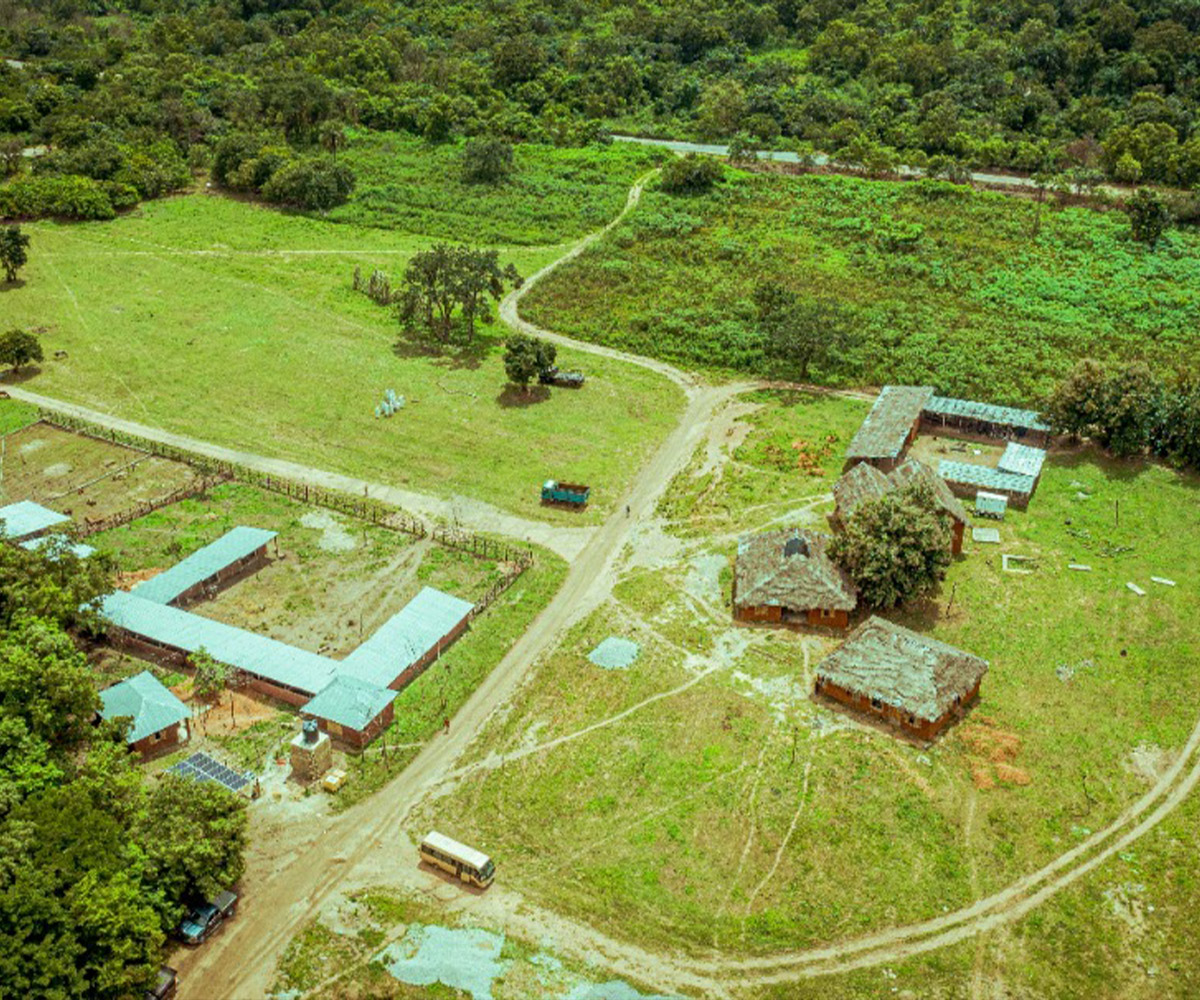-
An ineffective permit system has shifted film productions from urban cities to rural areas.
-
Veteran producers anticipate the growth of ‘film lots’ to maintain control of shooting environments.
-
Without government support, Nigeria can’t grow its production capabilities to full scale.
Since its inception in 1992 with the release of Ken Nnebue’s thriller, Living In Bondage, the scope of Nollywood–the portmanteau used to refer to Nigeria’s film industry–has only grown bigger. From the over 750,000 copies of Living In Bondage sold that made the film an instant hit to the return of cinema culture to the country around the early 2010s and, now, the rise of streaming services like Netflix and Amazon in ubiquity, Nollywood has continued to tell authentic stories about the Nigerian experience while finding ways to bolster profitability. Last year, Nigerian films grossed over N800 million ($1,103,400) at cinemas. Crucially, the industry employs over 1 million people.
While Nollywood is also widely recognised as the second largest film producer in the world, behind Hollywood, it continues to grapple with logistical difficulties surrounding production. The lack of governmental support or an institutional framework to smoothen the production process continues to make filmmaking in the country a herculean effort, meaning that filmmakers have had to move their productions to other countries in the past for various reasons.
“One of the biggest issues is getting the right permits because we don’t have the functional bodies to issue those permits to shoot,” actress and producer Imoh Eboh tells STATEMENT. “They exist in theory but they’re not functional in a practical sense. In other countries like Tanzania, the government and authorities are fully involved in the filmmaking process, but in Nigeria, it’s heavily based on who you know and how you can work around tricky situations.”
Too often, the process of getting film permits is bogged down by bureaucratic red tape that reflects how low the movie industry ranks on the government’s list of priorities. It’s a conundrum that shows no sign of getting better despite the industry generating over $600 million annually. With the bulk of filmmaking shoots taking place in urban cities like Lagos and Abuja, the lack of interest in the filmmaking process by government authorities can often mean that producers and directors are left to figure out how to navigate shoots in areas they’re not familiar with alone. They are often left at the mercy of touts and street urchins locally known as agberos who make logistical preparation and execution a nightmare.
Blessing Uzzi, a Nigerian producer and filmmaker, contends that these street urchins are at the heart of all the logistic issues facing filmmakers. “Touts are at the root of the problem,” she says. “To be honest, every [logistics] problem eventually boils down to an agbero issue.”
Furthermore, the uncertainty and incertitude of logistical preparations mean that very few people working in the Nigerian film industry can claim to have mastered the process. According to director and producer, Editi Effiong, not having a comprehensive understanding and mastery of the logistical process is a big issue that needs addressing. “The most chaotic aspect of setting up logistics for a Nigerian shoot is having the know-how,” he says. “Because most pictures are shot in Lagos or in just one location, the ability to handle people over large spaces or work on sequences that are not situated anywhere between Lekki and Ikeja means that most people don’t have any experience with that. However, I think the industry is growing in know-how and people are getting a handle on how to do things.”
The continued growth of the movie industry and the influx of a new range of industry practitioners means that alternative options are being sought to find a way around these logistical issues. One of the options being explored is the devolution of the filmmaking process from the urban centres where films were made in the past to other areas across the country. It’s an idea that has historical precedence. An ambitious project led by ex-Cross River governor, Donald Duke, in the mid-2000s was launched to turn the picturesque Tinapa Resort in Calabar into a filmmaking mecca in Nigeria with movie mogul, Mo Abudu, leading that charge through her EbonyLife studios.
In 2018, Up North, a romantic drama based on a story by Editi Effiong, was released to critical acclaim. Mainly shot in Bauchi, in Northern Nigeria, Editi remembers it as one of his favourite shoots. “I’ve found that shooting in the North is inherently easier than shooting in Lagos,” he explains. “When I am working in the North, everything is easy. In the past when I have applied for military and government permissions, I’ve tended to get them and I think Bauchi is a great place to shoot as well.”
The next evolution of this trend could also be a move towards movie lots that allow filmmakers to bring their visions to life in a controlled environment without the disruption of hoodlums or the looming spectre of logistical costs hanging over them. Last year, filmmaker Kunle Afolayan, who is often credited with helping Nollywood transition into a more modern epoch, released his latest movie, Aníkúlápó, to rave reviews. The historical drama, set in the 17th century Oyo Empire, was shot on location at the KAP Film Village and Resort, a 40-acre property located in Igbojaye, Oyo State.
The idea for setting up the lot came to Afolayan after a decision was made in his mind to pursue making Aníkúlápó. “Seeing as the movie was set in the 17th century, my mind went to my mum’s village because they have mountains and all that,” Afolayan says. “We decided to go there and see if we could remodel some structures. I took some of my crew members and friends but as we were entering the town I saw a land by the side surrounded by hills. Later, I went to the community, told them my plans and asked for six acres to build sets and all that but today we have 40 acres.”
Another advantage of having that facility, per Afolayan, is being able to bring his vision to life clearly. “The highlight of Aníkúlápó in a film village is the flexibility that you have,” he says. “Sometimes you have a script and it says you need a palace but it doesn’t tell you what the palace looks like. I referenced some pictures of the Oyo empire in the past but I decided that I wasn’t going to build the palace like the ones from that period.”
For all the talk about movie lots easing the production process, they represent different logistical costs due to the concentration of movie stars and crew members in cities like Lagos, Ibadan, and Abuja. “Because of their nature, we need to have these lots in faraway places,” Eboh says. “So, the question becomes if filmmakers can have the money to put their crew and cast in the optimal facilities around these areas. Donald Duke built one in Tinapa, but people still moved back to Lagos because flying people across the country is expensive.”
Still, Editi Effiong believes there is a place for movie lots in the Nigerian movie landscape. “Lagos is the hub of the film-making industry, so I think it needs a lot,” he says. “I think there’s a market for smaller and big pictures that can find film lots very useful. Generally, I also think that film lots can reduce the cost of production significantly, especially for pictures that don’t need a lot in terms of outdoor sets.” He also thinks that having movie lots in places like Uyo, Jos, Kaduna, and Kwara would go a long way to helping lower logistical costs and foster a true, broad representation of Nigeria.
It’s something that Kunle Afolayan wholeheartedly agrees with. “I think we can have movie lots anywhere,” he says in a chat from the KAP Film Village one morning. “The important thing is that someone has to see the vision. We have different geography everywhere, and we need it all deployed and used in our films. Nigeria is massive, and all we need is people to take the bull by the horn.”
As Nollywood continues to grow bigger and the scope of its stories gets more ambitious, there are sure to be more movies made in lots across the country thanks to investments being made by private financiers and the influx of streaming services into the country. As these adventurous commitments rise in popularity, there should also be vigorous government-led efforts to make filming in urban areas hassle-free, thereby ensuring that the movie industry can unlock its full potential.






